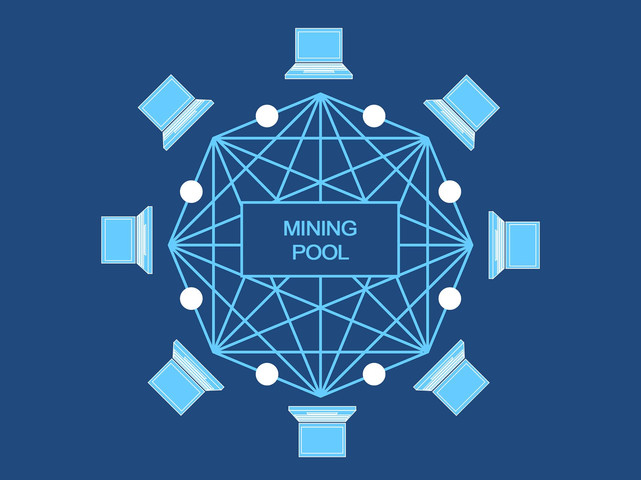6:41 PM What is a mining pool? | |
|
These days, everyone entering the world of mining cryptocurrencies will have to compete with big companies and their mining farms. So, naturally, one of the first decisions that every aspiring miner has to make is whether to go solo or join a ‘pool’. Pooled mining is a mining approach where multiple users contribute their computing power to the generation of the block. A pool has a much bigger chance of solving a block and getting a reward, although that reward will be split between the members according to the contributed processing power. So, joining a pool might create a steady stream of income, even though each payment will be quite modest compared to a full block reward. Joining a pool works just like signing up to to any other web service. All you need to do is create an account on the pool’s website. Once you have an account, you’ll need to create a ‘worker’. There is a possibility of creating multiple workers, assigning them to each individual piece of hardware that you use. Another important thing to consider is the amount of deductions from your mining payments that the pool will require. Normally, the value ranges between one percent and 10 percent, while some pools won’t charge you at all. Is Bitcoin mining profitable?Bitcoin mining has transformed from a handful of early enthusiasts confirming transactions using their CPUs, into a full-blown specialized industrial-level venture. The easy money was scooped out a long time ago, and what remains is basically buried under the cryptographic equivalent of tons of hard rock. Furthermore, BTC’s ever-growing conversion rate makes it more and more appealing to both large corporations and the general public, which attracts a lot of new miners, tightening the competition. In theory, mining is still possible for anyone, but only those with specialized high-powered machinery are able to make any kind of profit by mining the cryptocurrency. Most individual miners and smaller pools will spend more money on electricity bills than is generated through mining. So, unless you’re able to invest in big and expensive mining farms, and have access to cheap electricity, profitable Bitcoin mining is simply impossible. Moreover, the average home miner can be very susceptible to trivial problems like hardware failures, power outages, network disconnections and price crashes. They will most likely struggle to be profitable or even recoup the costs of the mining hardware and electricity. Thus, given the present circumstances, Bitcoin mining profitability for home miners is highly unlikely. However, the situation might improve in the future. ASIC mining software is still developing and reaching new highs, while new cheap and sustainable power solutions are also coming into play. Those things combined may not only make Bitcoin mining profitable for small individual miners again, they could also greatly improve the decentralization of the network, further protecting it against legislative risks. | |
|
| |
| Total comments: 0 | |

